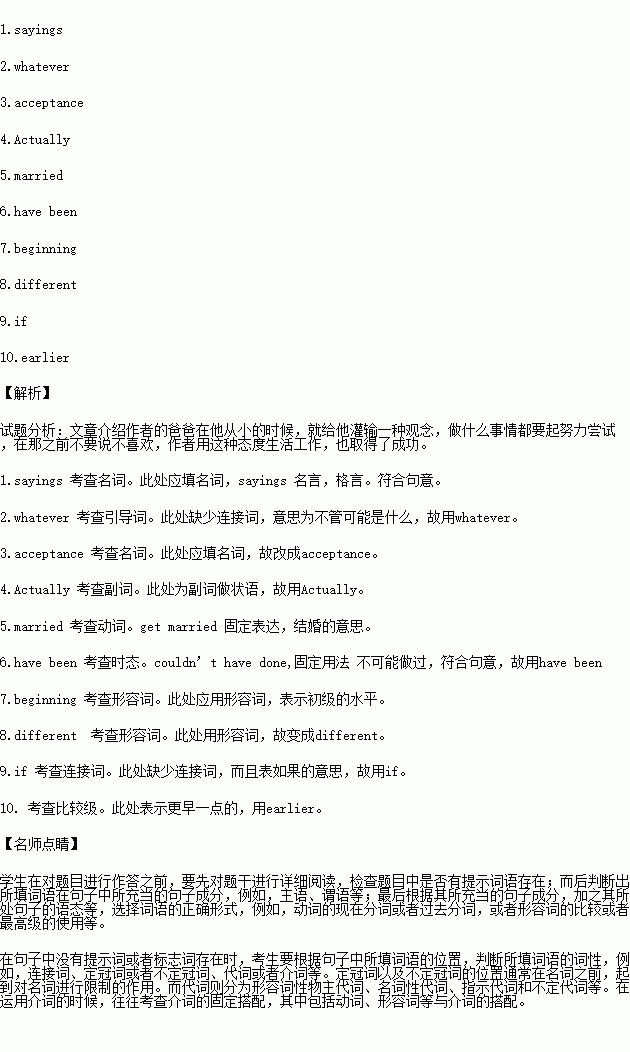There is a famous story about British poet Samuel Taylor Coleridge. He was writing a poem when he was interrupted by a knock at the door.
This was an age before telephones. Someone was delivering a message. When Coleridge got back to his poem, he had lost his inspiration. His poetic mood had been broken by the knock on his door. His unfinished poem, which could otherwise have been a masterpiece, would now never be more than a little piece.
This story tells how unexpected communication can destroy an important thought, which brings us to the cell phone.
The most common complaint about cell phones is that people talk on them to the annoyance of people around them. But more damaging may be the cell phone’s interruption of our thoughts.
We have already entered a golden age of little white lies about our cell phones, and this is by and large (大体上) a healthy, protective development. “I didn’t hear it ring” or “I didn’t realize my phone had shut off” are among the lies we tell to give ourselves space where we’re beyond reach.
The notion of being unreachable is not a new concept—we have “Do Not Disturb” sign on the doors of hotel rooms. So why must we feel guilty when it comes to cell phones? Why must we apologize if we decide to shut off the phone for a while?
Now time alone, or a conversation with someone next to us which cannot be interrupted by a phone, is something to be cherished. Even cell phone devotees(信徒), myself usually included, can’t help at times wanting to throw their phones away, or curse(咒骂) the day they were invented.
But we don’t and won’t, and there really is no need. All that’s required to take back our private time is a general social recognition that we have the right to it. In other words, we have to develop a healthy contempt (轻视)for the rings of our own phones.
A cell phone call deserves no greater priority than a random word from the person next to us,though the call on my cell phone may be the one-in-a-million from Steven Spielberg—who has finally read my novel and wants to make it his next movie. But most likely it is not, and I’m better off thinking about the idea I just had for a new story, or the slice of pizza I’ll eat for lunch.
1. What is the point of the anecdote about the poet Coleridge in the first three paragraphs?
A. To emphasize the disadvantage of not having a cell phone.
B. To encourage readers to read the works of this poet.
C. To show how important inspiration is to a poet.
D. To direct readers’ attention to the main topic.
2. What does the writer think about people telling “white lies” about their cell phones?
A. It is a way of signaling that you don’t like the caller.
B. It is basically a good way to protect one’s privacy.
C. We should feel guilty when we can’t tell the truth.
D. It is natural to tell lies about small things.
3. According to the author, what is the most annoying problem caused by cell phones?
A. Cell phones interrupt people’s private time.
B. With cell phones it is no longer possible to be unreachable.
C. People feel guilty when they are not able to answer their cell phones.
D. People get so obsessed with the cell phone rings that they fail to notice anything else.
4. What does the last paragraph imply?
A. Never let cell phones disturb your life too much.
B. A person who calls us from afar deserves more of our attention.
C. Steven Spielberg once called the author to talk about the author’s novel.
D. You should always finish your lunch before you answer a call on the cell phone.

